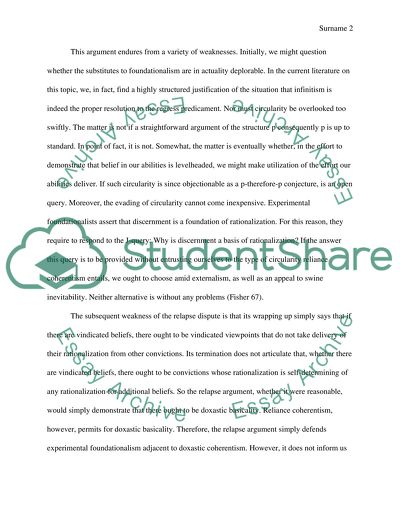Cite this document
(“Is Foundationalism or Coherentism the better model for the Essay”, n.d.)
Retrieved from https://studentshare.org/philosophy/1584458-is-foundationalism-or-coherentism-the-better-model-for-the-justification-of-our-beliefs-investigate-the-arguments-on-either-side-and-evaluate-them
Retrieved from https://studentshare.org/philosophy/1584458-is-foundationalism-or-coherentism-the-better-model-for-the-justification-of-our-beliefs-investigate-the-arguments-on-either-side-and-evaluate-them
(Is Foundationalism or Coherentism the Better Model for the Essay)
https://studentshare.org/philosophy/1584458-is-foundationalism-or-coherentism-the-better-model-for-the-justification-of-our-beliefs-investigate-the-arguments-on-either-side-and-evaluate-them.
https://studentshare.org/philosophy/1584458-is-foundationalism-or-coherentism-the-better-model-for-the-justification-of-our-beliefs-investigate-the-arguments-on-either-side-and-evaluate-them.
“Is Foundationalism or Coherentism the Better Model for the Essay”, n.d. https://studentshare.org/philosophy/1584458-is-foundationalism-or-coherentism-the-better-model-for-the-justification-of-our-beliefs-investigate-the-arguments-on-either-side-and-evaluate-them.


